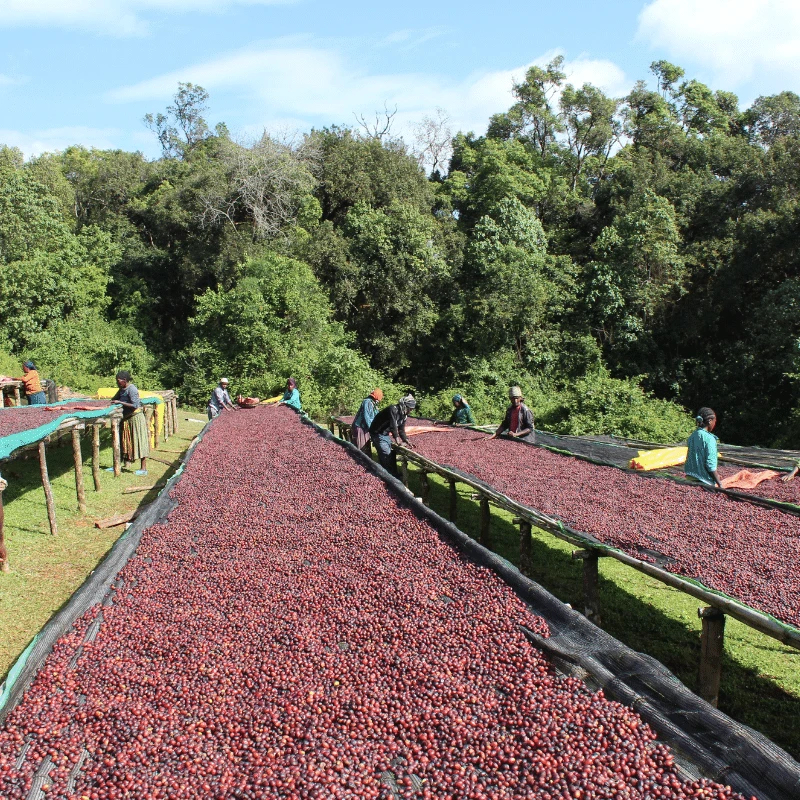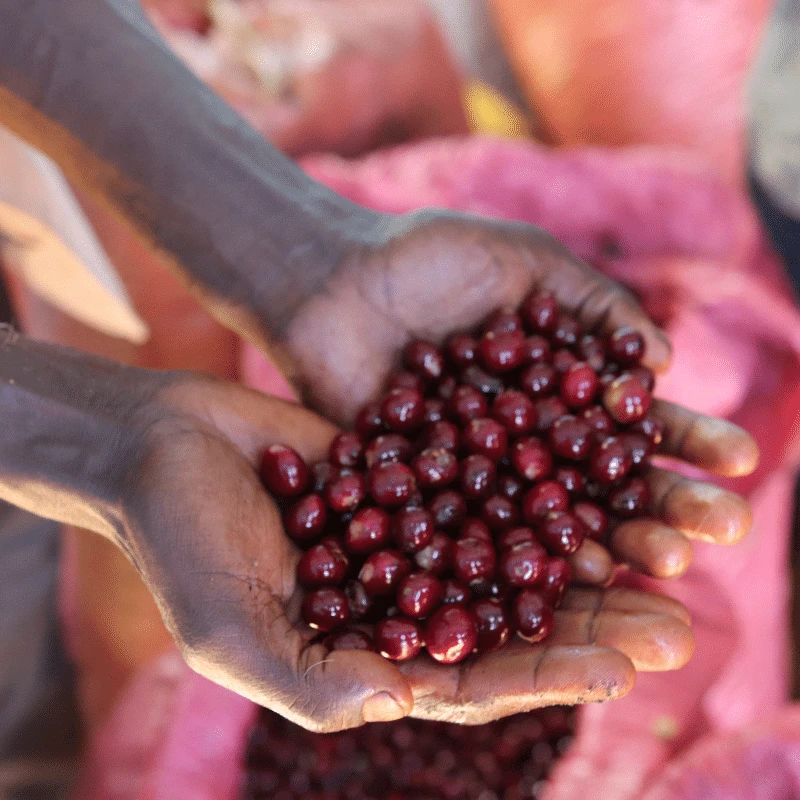
Kronotrop DARK Filtre
Kahveler

Nektarin, çilekli yoğurt, kakaolu puding
250G
19.39£
Guji bölgesi son birkaç yıldır dikkat çekiyor. Guji bölgesindeki Shakisso'da bulunan Korcha işlem istasyona 420 kayıtlı çiftçi bulunuyor.
Bölgedeki küçük arazi sahipleri 1900 ila 2050 m rakım arasında değişen özelliklere sahip. Bu rakım, bu yörenin kaliteli kahvelerinin üretilmesi için en uygun aralık olarak kabul ediliyor.
Ağaçta olgunlaşıp düşen meyvelerin de kompost süreçlerine dâhil olması ve kompost uygulamalarının yaygınlaştırılması için odaklanmış bir çaba mevcut.
Hasat zamanı, geldiğinde tüm aile sürece dâhil oluyor. Kahve kirazlarını toplandıktan sonra, yıkama istasyonuna teslim edilmeden önce, araziye serilerek ayıklanıyor. Yalnızca olgunlaşmış kahve kirazlarının toplandığından emin olunuyor. Kahveler sonrasında tekrar gözden geçirileceği için mükemmel bir şekilde ayıklanması mümkün oluyor. Ayıklanırken değerlendirme için ince bir tabaka halinde seriliyor.

İstasyonla üye çiftçiler, yüksek kaliteli kahve sunmak için hasat öncesi, hasat vakti ve hasat sonrası süreç hakkında Guji Highlands bitki uzmanları tarafından iyi tarım uygulamalarının temelleri hakkında teknik yardım alır.
Olgun kahve kirazları, dikkatli bir tasnif için istasyona teslim edilir ve üç ila dört hafta boyunca yerden yüksek tezgâhlarda kurumaya bırakılır.
Nem oranının uygun olup olmadığı kontrol edildikten sonra kabuklu kahve çekirdekleri çuvallanıp saklanır ve depoda dinlendirilir. Daha sonra kabuk ayıklama işlemi gelir ve ihracata hazır hale gelmesi için Guji Highlands’teki değirmene gönderilmek üzere Addis'e gönderilir.
Önümüzdeki sezon için, yüksek kaliteli yıkanmış kahve de işleyebilmek için yıkama makinesi kurma planı mevcuttur.

890₺ üzeri siparişe ücretsiz kargo
Sepetiniz boş
Alışverişe BaşlaToplam 0,00₺
Satın Al